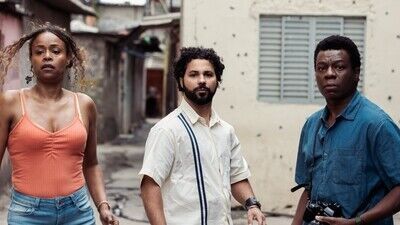This is all to say that the six-part HBO Original Series “City of God: The Fight Rages On” has a lot to live up to. It’s not as strong as the film that inspired it, but it’s still a smart series with insight into what life is like in its favela. It takes place twenty years after the events of the film, mixing many of the same elements. Most of the original cast returns (notably minus Alice Braga), and the series uses many of the same visual effects.
The setting is also back, the titular favela having grown up with its characters, now more crowded and decrepit. Drug dealers still rule the streets, their wars terrorizing the residents. While our hero Wilson, aka Rocket (Alexandre Rodrigues), smoked some joints and had some fun doing it in the original, the drugs are now mostly off-screen: spoken of, but no longer powering any party.

In fact, the party is largely absent in “The Fight Rages On.” Rocket is all grown up with a fifteen-year-old daughter (he did more than lose his virginity after all!), and he judges her for her taste in music. Leka (Luellem de Castro) is a singer, headlining the City of God’s local club by performing explicit sex-positive songs. That she has so much confidence and stage presence so young doesn’t seem to impress Rocket. He’s unable and unwilling to connect with her, having passed his parenting responsibilities to his mother.
So yeah, Rocket has gone from bopping in the DJ booth to shaking his head at the MC – he’s a killjoy, and “City of God: The Fight Rages On” has lost some of its joy alongside him. With its cast mostly in middle age, “The Fight Rages On” doesn’t have the same sense of exuberance as the original. It also lacks that languid quality that defined the film, depicting teens with too much time on their hands.

Instead, the first episode matches the pace of the film’s fight scenes – loud with a dizzying number of quick cuts and characters talking quickly. But in the series, they’re dropping exposition that feels bloated and hard to follow between all the competing elements. Eventually, the pace lessens, but, at least in the first two episodes available to critics to screen, there’s no relaxation—just a slight loosening of the frenzy.

